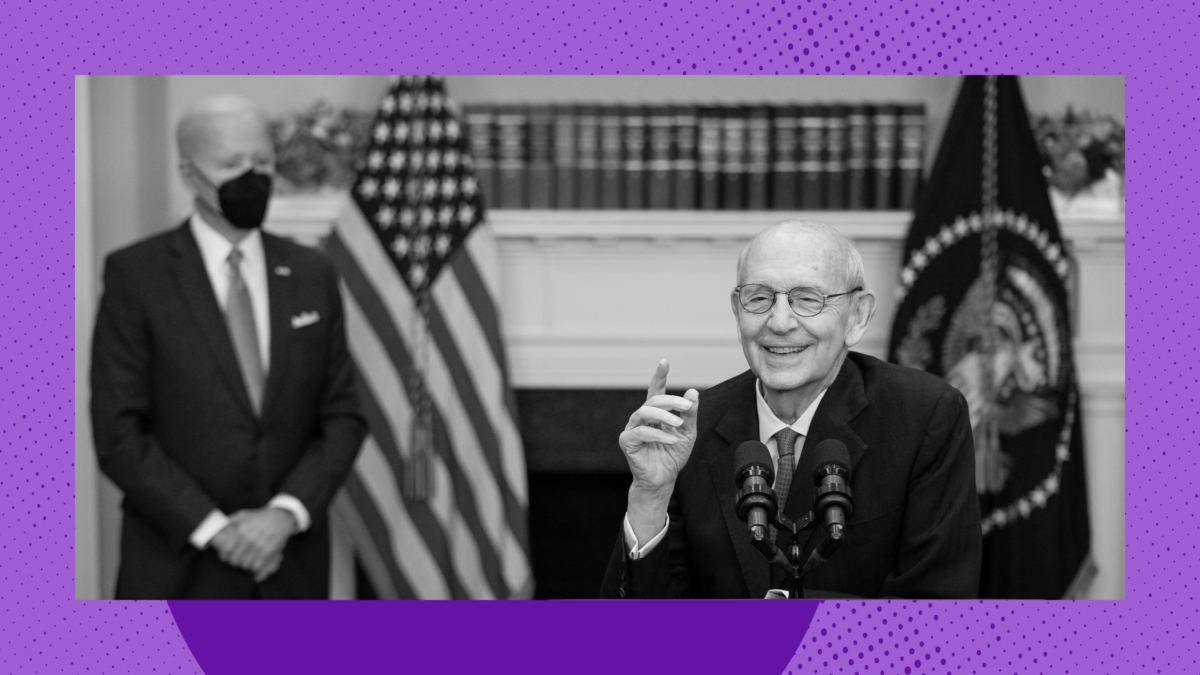On Thursday afternoon at the White House, Justice Stephen Breyer officially announced his retirement from the Supreme Court. In a letter to President Joe Biden, Breyer affirmed that he will step down when the Court adjourns for summer recess, assuming his eventual successor has been confirmed.
In his remarks, Breyer at once acknowledged the frail status of this country’s democracy, while maintaining his trademark brand of optimism that it will survive. “It’s an experiment that’s still going on,” he said. “It’s the next generation, and the one after that—my grandchildren and their children—they’ll determine whether the experiment still works.”
(In a lengthy quotation from Gettysburg Address, he briefly paused with a friendly amendment to the Declaration of Independence’s language that Lincoln quoted: “all men are created equal,” Breyer asserted, meant to include women, too. Given that the Nineteenth Amendment was not ratified until more than a century after the founding, this feels dubious at best, but whatever. No one expected Stephen Breyer’s speech at his own retirement party to be concise.)
Biden thanked Breyer for his four decades of service on the federal bench, including nearly 28 years on the Supreme Court, before briefly addressing the next task he faces: naming the next Supreme Court justice. Biden reiterated his campaign trail promise to nominate the first Black woman in the Court’s 232-year history—a move he called “long overdue.”
Biden didn’t take questions from the press about his candidate selection process, asserting that it would be “inappropriate” with Breyer present and still serving as a justice. However, he announced his intention to nominate an individual of “extraordinary qualifications, character, experience, and integrity” by the end of February, and expects the Senate to “move promptly” to confirm them.

